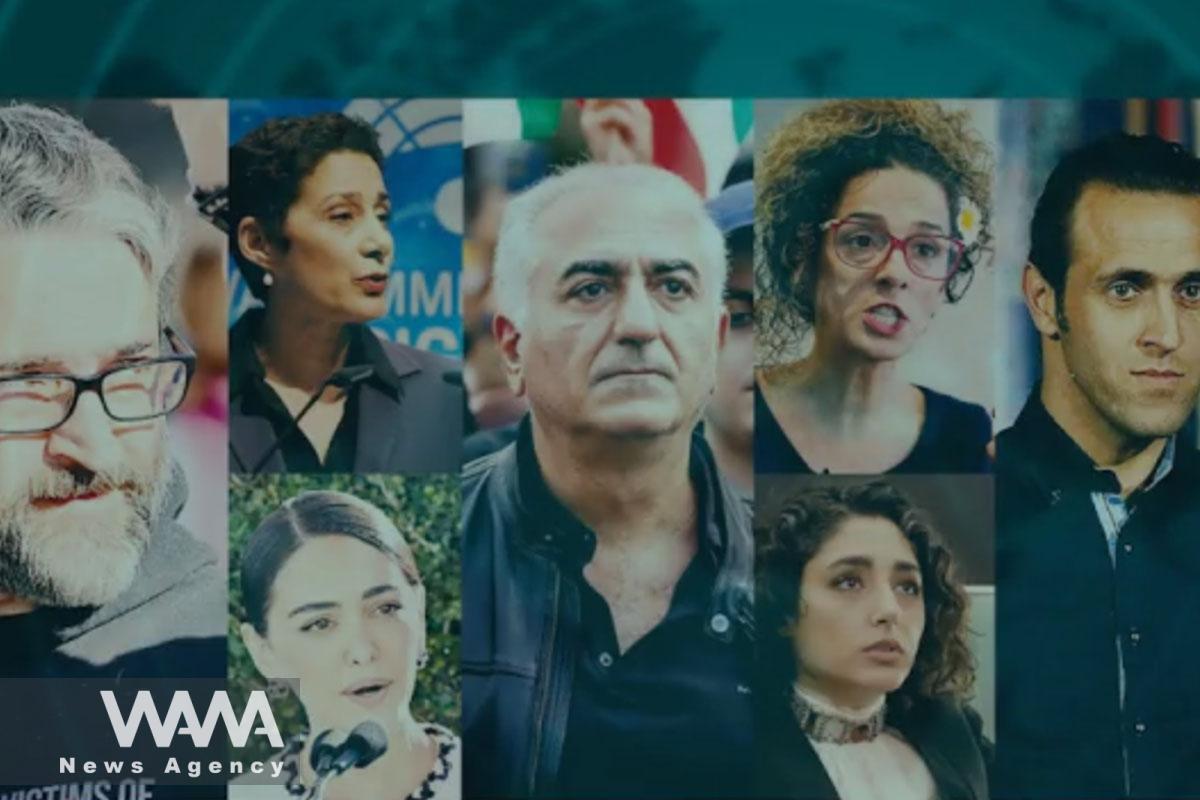America, the Iranian Opposition, and the Financial Crisis
WANA (Feb 02) – “Is the Iranian opposition truly independent?” This question has gained more attention than ever following the disclosure of financial documents and new decisions by the Trump administration. Groups that once presented themselves as defenders of the Iranian people are now facing serious financial allegations and clear ties to foreign governments.
According to published documents, the United States has allocated tens of millions of dollars in recent years to opposition groups against the Islamic Republic, Persian-language opposition media, and political activists. These funds have been provided through the U.S. State Department, intelligence agencies, and affiliated organizations. However, Trump’s decision to suspend foreign financial aid for three months has pushed many of these groups into crisis.
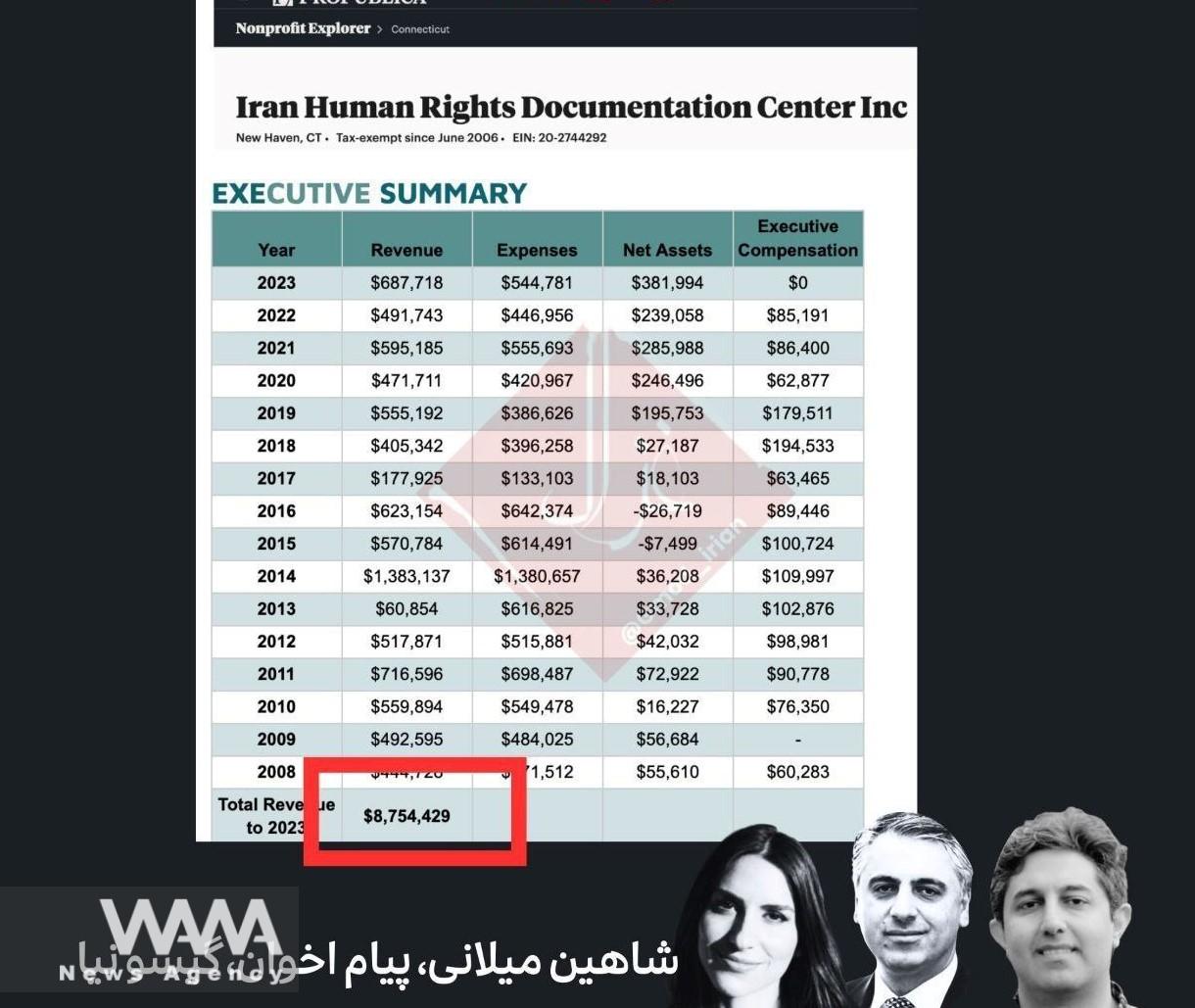
The funds received by anti-Iran institution, the Iran Human Rights Documentation Center, by the end of 2022 / WANA News Agency
Ataollah Mohajerani, Iran’s former Minister of Culture and Islamic Guidance, addressed this issue in an article, writing: “From day one, Trump disappointed and practically destroyed the opposition seeking to overthrow the Islamic Republic. The approximately $60 million that was being given to those claiming to pursue regime change in Iran is no longer available. That cup is broken, and that vessel is spilled.”
This decision has created a significant crisis, especially for media outlets and opposition groups that have long relied on direct financial support from Washington.
Persian-language media outlets such as BBC Persian, Iran International, and Radio Farda, which have operated for years with American funding, now face an uncertain future. Reports indicate that the budget cuts have led to severe financial difficulties, making it challenging to pay employees and continue operations.
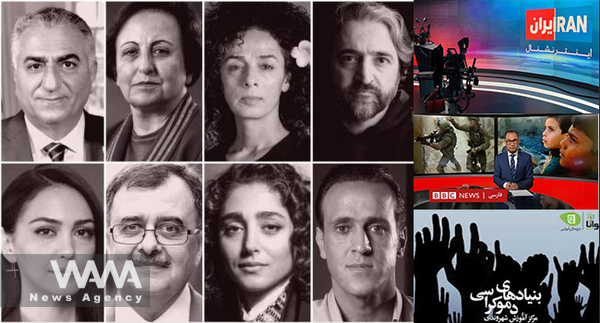
These media organizations, which previously supported Trump’s anti-Iran policies and expected increased financial backing, now find themselves confronting the opposite reality.
America’s Shift in Approach: Where Did the Money Go?
One of the most striking aspects of this policy shift is the revelation of how opposition groups have spent the allocated funds. Trump’s Secretary of State openly admitted that only 12 cents of every dollar provided to these groups actually reached its intended purpose, with the rest being used for personal expenses and organizational costs.
These figures highlight the failure of U.S.-backed regime change projects through external opposition groups. America has previously supported opposition forces in countries like Venezuela, Cuba, and parts of the Middle East, only to reduce or cut aid after witnessing their failures.
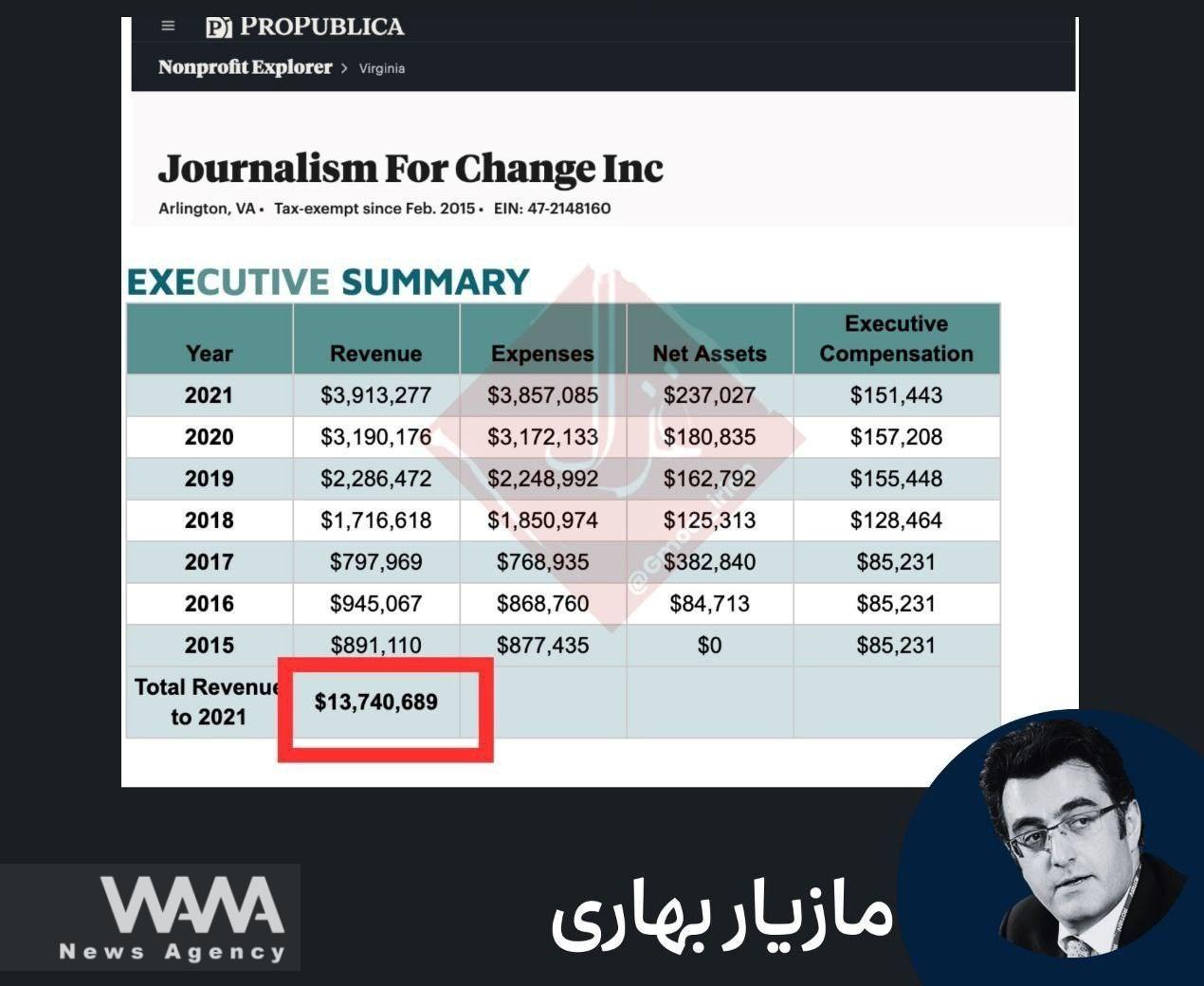
The funds received by anti-Iran institution, IranWire , by the end of 2022 / WANA News Agency
Leaked Financial Documents: Who Benefited from U.S. Funds?
Recently leaked financial records of certain opposition figures and anti-Iranian media outlets confirm that foreign funding was not only real but involved substantial sums.
In 2023, California state documents revealed that Ali Ebrahimzadeh, an activist affiliated with opposition campaigns, received $180,000 in funding from the U.S. government. The official description labeled this payment as part of an initiative for “awareness-raising and solidarity among the Iranian people.” However, reports suggest the money was actually used for promotional activities and lobbying efforts serving specific interests.
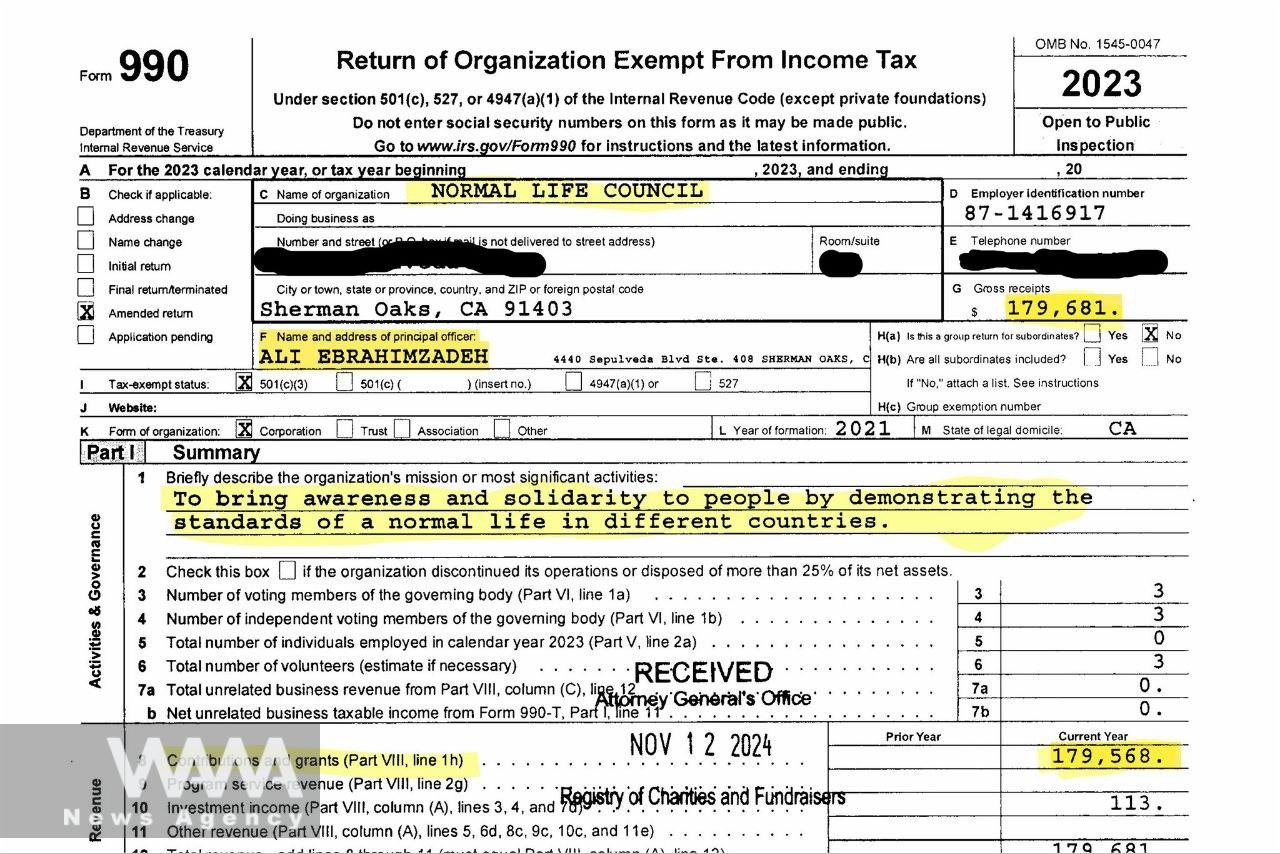
A California state document shows that Ali Ebrahimzadeh received $180,000 in 2023 from the United States for his anti-Iranian activities. The document states that the funds are for raising awareness and solidarity among the people of Iran and showing them a normal life / WANA News Agency
Shahram Homayoun, a well-known opposition media figure, reacted to the funding suspension by stating: “For the first time in history, Trump has cut off funds to all Iranian opposition groups. Many are now left orphaned and are mourning this loss.”
Additionally, financial reports indicate that institutions such as IranWire, the Boroumand Foundation, the Iran Human Rights Campaign, and Tavaana were direct recipients of U.S. State Department funding. Documents show that these organizations received substantial financial support for media and promotional activities until the end of 2022.
A Struggle for Alternative Funding
Now that U.S. financial support is dwindling, many opposition groups are scrambling to find alternative sources of funding. Some are turning to the European Union and regional governments, while others are shifting strategies to gain domestic support or increase their personal revenues.
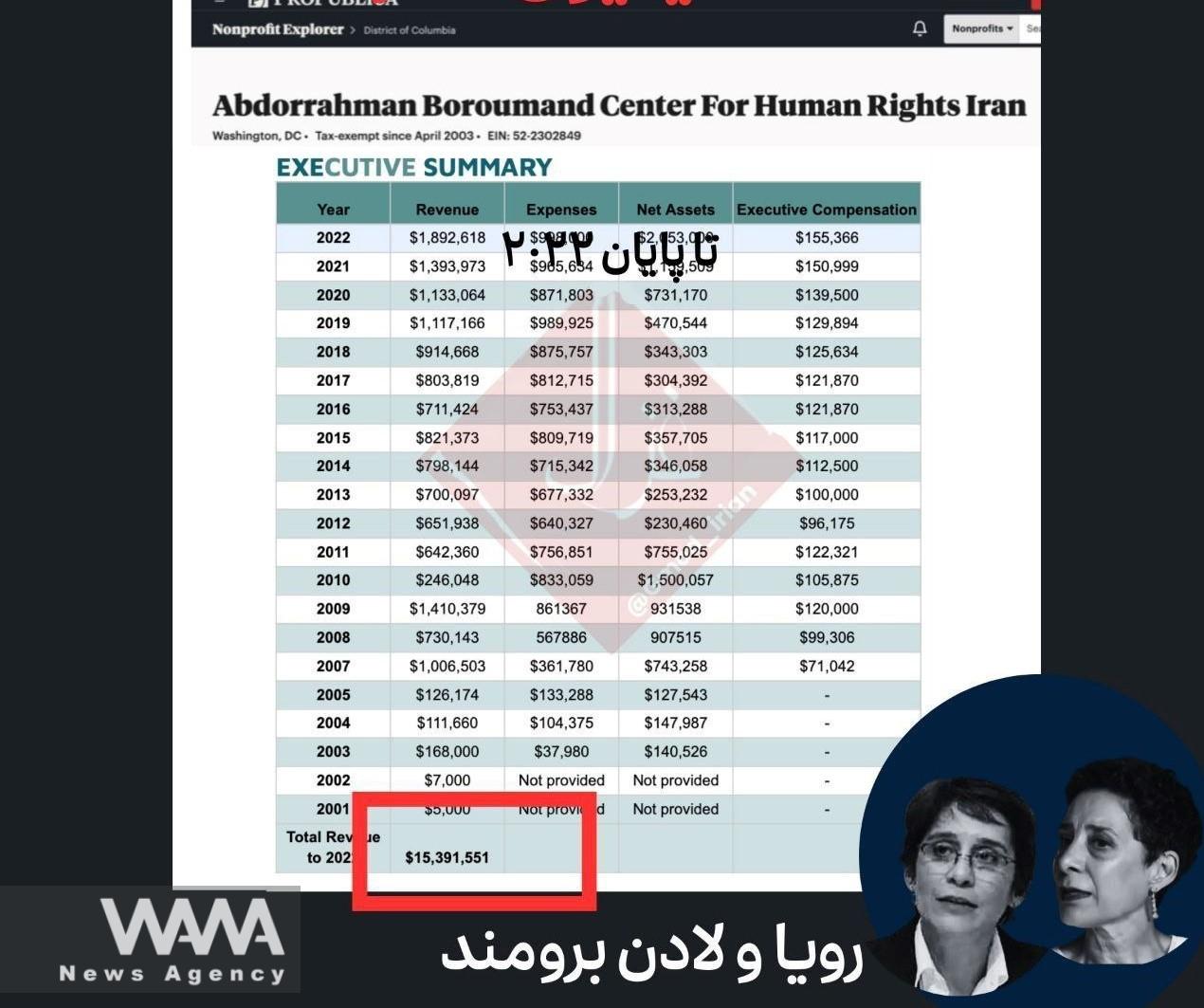
The funds received by anti-Iran institution, the Boroumand Foundation, by the end of 2022 / WANA News Agency
These changes will have several significant consequences:
1. Increased Internal Conflicts – Competition for limited financial resources is intensifying divisions within the opposition. Figures like Reza Pahlavi, who has access to independent funds, may try to absorb weaker groups to strengthen his own political camp.
2. More Financial Corruption Scandals – With reduced foreign aid, internal investigations and leaks are likely to increase. Reports of large payments to certain activists have already fueled growing distrust toward the opposition.
3. Media Outlets Seeking New Investors – Media organizations that previously relied on American funding are now looking for new investors. Some are attempting to secure financial support from European governments or private investors.

Iran’s Opposition: From Efforts for Unity to Internal Collapse
WANA (Sep 16) – Did you know that over 90% of political movements that act as opposition to established governments gradually disintegrate due to internal conflicts and ideological differences? The Iranian opposition camp is no exception to this rule. Groups that once united with the hope of overthrowing the government have now disintegrated to the […]
A Turning Point for the Iranian Opposition
The end of U.S. financial support for certain opposition groups does not mean the end of the Iranian opposition altogether. These groups will continue seeking alternative funding sources, adjusting their strategies, and even altering their political approaches. However, one thing is certain: their era of financial dependence on U.S. dollars has entered a new phase—one that requires adaptation, transformation, and possibly even retreat.
The key questions now are:
Can these groups survive without foreign funding?
Will the structure of the Iranian opposition undergo major changes?
More importantly, will these developments impact Iran’s political landscape?
One thing is clear: a new chapter has begun for the opponents of the Islamic Republic—one where their financial backing is no longer guaranteed and their foreign ties are more exposed than ever before.

